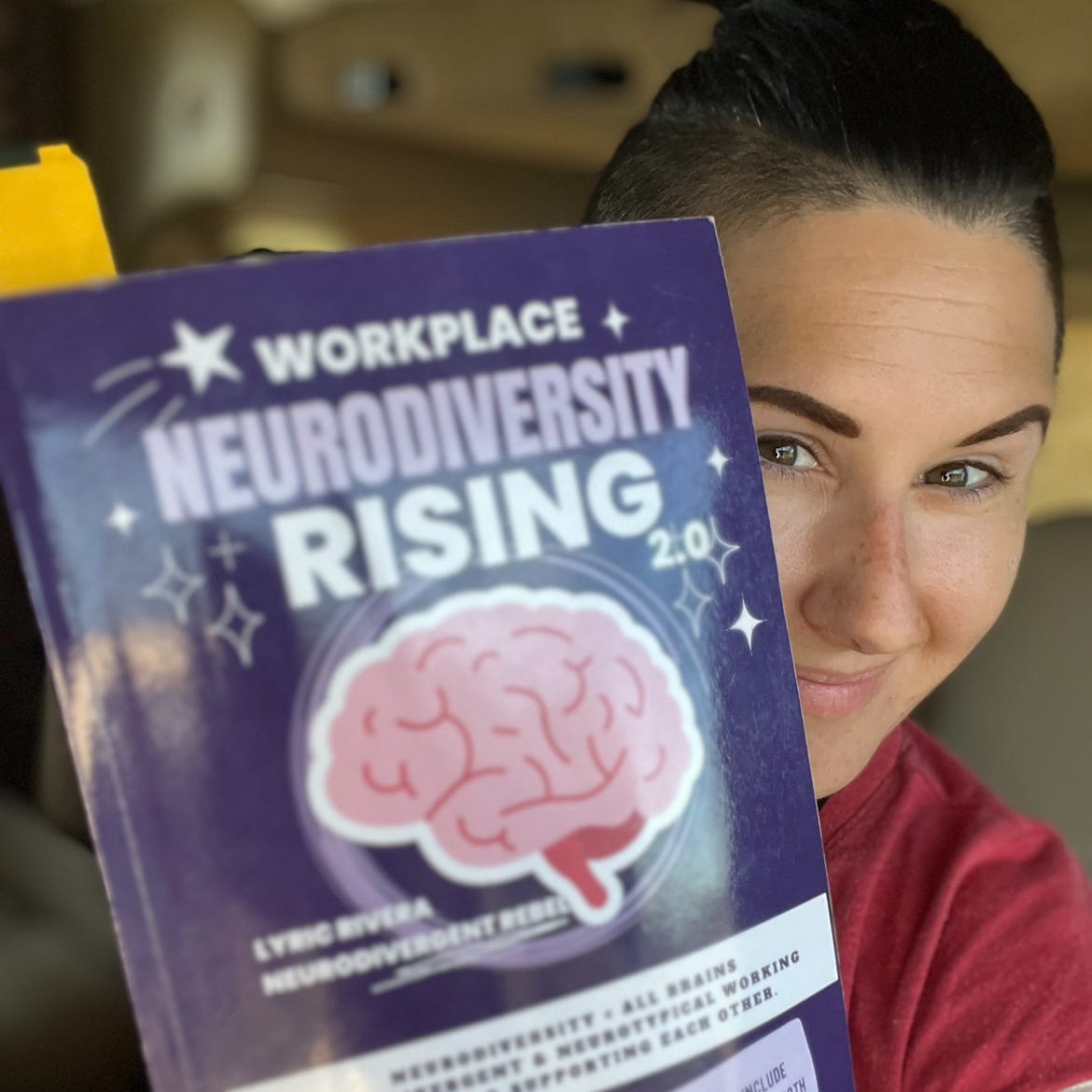Learning I was NeuroDivergent at 29: Do I wish I could have found out sooner? No! And here's why....
NeuroDivergence and Forced Medicalization - where a person is forced into therapy, to take medication, or to have a medical procedure against their will or without their knowledge or consent
Once I finally received my Autism diagnosis, I had many mixed feelings.
On one hand, the Autism diagnosis brought a sense of relief, validating many of my lived experiences. It was a moment of profound understanding and acknowledgment. Yet, simultaneously, I was angry at the thought of nearly thirty years spent in the dark regarding my own mind. I was also in mourning over the pain that could have been avoided if only I (or those around me) had known about Autism or NeuroDiversity when I was growing up.
Early on, when I was still discovering what being Autistic (and NeuroDivergent) meant to me, I kept going back over various memories of moments in my life that suddenly, with new context applied, made considerably more sense. Much of what I was reliving was painful.
For a while, I was outraged about one specific instance with my school, a memory that had become locked in my mind (when I had been referred for testing for ADHD and other learning disabilities in the first or second grade).
When the school requested that I be tested, my guardians resisted, refusing all tests (because they were trying to protect me).
My guardians had multiple worries, which caused them to decline to have me seen by the school's evaluator.
One worry was that harm might come from "being labeled" with something that could follow me for the rest of my life.
Another concern was forced medicalization (where a person is forced into therapy, to take medication, or to have a medical procedure against their will or without their knowledge or consent).
In my parents' and grandparents' days, Autistic and other NeuroDivergent children were frequently hidden away in institutions or victims of horrific procedures and other abuses.
In my case, before I'd even been assessed, the school was already asking about the use of medications to slow down my 'hyperactivity,' which hadn't been a problem at home (where I was allowed to move about freely and make as much noise as I needed to).
Because my family did not have many resources, there was a concern that if the school had a documented medical reason for me to be medicated, my guardians would not be able to push back or refuse if it turned out the medications were not helpful or, worse, were harmful (because in Texas, schools will sometimes collude with medical professionals to call CPS on families who opt out of using pharmaceutical interventions for ADHD or behavioral interventions like ABA for Autistic children).
Please note: I am not against ADHD medications for consenting ADHDers (or any other medication that helps NeuroDivergent People live better lives), especially adults, if they find these medications to be helpful.
I'm not "anti-medication."
I am against medication being forced onto us against our will or being the first and only option offered to us for mental distress (if provided without offering support, that could help us function more effectively or address the environmental obstacles and unfair expectations that hinder us).
I am also against the forced assimilation of NeuroDivergent People into NeuroTypical society (via therapies that frame NeuroDivergent People as less than other people). However, I am not against NeuroDivergent People being included in society or working to understand NeuroTypical experiences and culture (as long as we're not asked to erase ourselves for the comfort of others, and we're not made to feel as if our ways of thinking, being, and experiencing the world are wrong or less valid than those of other people).
I also have strong feelings against compliance-based behavior modification programs being used ON NeuroDivergent People without our consent (or on children who are too young to consent). This does not mean I'm opposed to NeuroDivergent People changing their own behavior or using these methods on themselves working towards their own goals vs goals someone else has for them (as long as they're able to give informed consent and understand the potential harms associated with what they're subjecting themselves to). Unfortunately, these methods are often recommended for young children and venerable individuals (who may struggle to share their objections/if they've been harmed due to age, lack of access to adequate communication, or other vulnerability).
Paid subscribers have access to the rest of the story. Thanks to every one of you for supporting my work.
If you are in need of a discount, please use the button or link below to get your subscription at a deep discount (because I don't want money to be an obstacle to people):
https://neurodivergentrebel.substack.com/LowIncomeDiscount
For readers experiencing financial hardship, please note that this offer is exclusively for you. This discount is offered on the “honors system” - I am not going to ask anyone for proof.
Please, kindly refrain from taking this offer if you do not need it.
I hope this helps,
- Lyric
Keep reading with a 7-day free trial
Subscribe to NeuroDivergent Rebel’s Substack to keep reading this post and get 7 days of free access to the full post archives.






